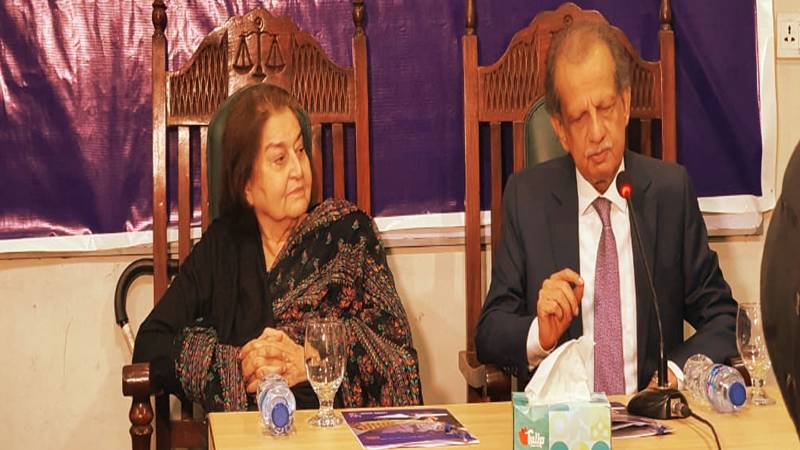
Former Supreme Court Justice Sheikh Azmat Saeed shared his insights on human dignity, issues related to the deprivation of basic human needs, freedom from gender-based violence, and the equality of religious minorities.
During a program titled “Upholding Human Dignity: Reflections and Way Forward for Pakistan," organized by the Law & Policy Research Centre (LPRC) at Lahore School of Law on Tuesday, Justice Saeed discussed the profound concept of human dignity, a principle he described as being of paramount importance to the founding fathers of the Constitution and deeply ingrained in the fabric of human rights, as articulated in Article 1 of the Universal Declaration of Human Rights (UDHR). "Dignity," he explained, "is our intrinsic feeling of self-worth and the fundamental baseline that defines our humanity."
He went on to articulate that disparities in the economic, social, or political realms directly undermine this essential human dignity. He said Article 14(1) of the Constitution of Pakistan, “The dignity of man and, subject to law, the privacy of home, shall be inviolable,” had not been well independently interpreted but was mostly tied to other human rights.
Addressing basic human needs, including those of prisoners, transgender individuals, and persons with disabilities, Justice Saeed lamented the neglect and violation of their dignity. He challenged the students to reflect on the plight of religious minorities, highlighting the systemic issue of relegating minorities to low-grade sanitation jobs. He said the job quota for minorities was filled by giving them jobs in sanitation, grade 1. He reminded the audience that a large number of Muslims reside in non-Muslim countries, emphasizing the importance of Pakistan providing sufficient protection to non-Muslims at home in order to credibly advocate for Muslims abroad.
Justice Saeed concluded his session with a call to action, inspiring the audience to advocate for human dignity and work tirelessly towards a more just and equitable society. He encouraged mindful reflection on the progress made while also striving for future advancements in upholding human dignity.

